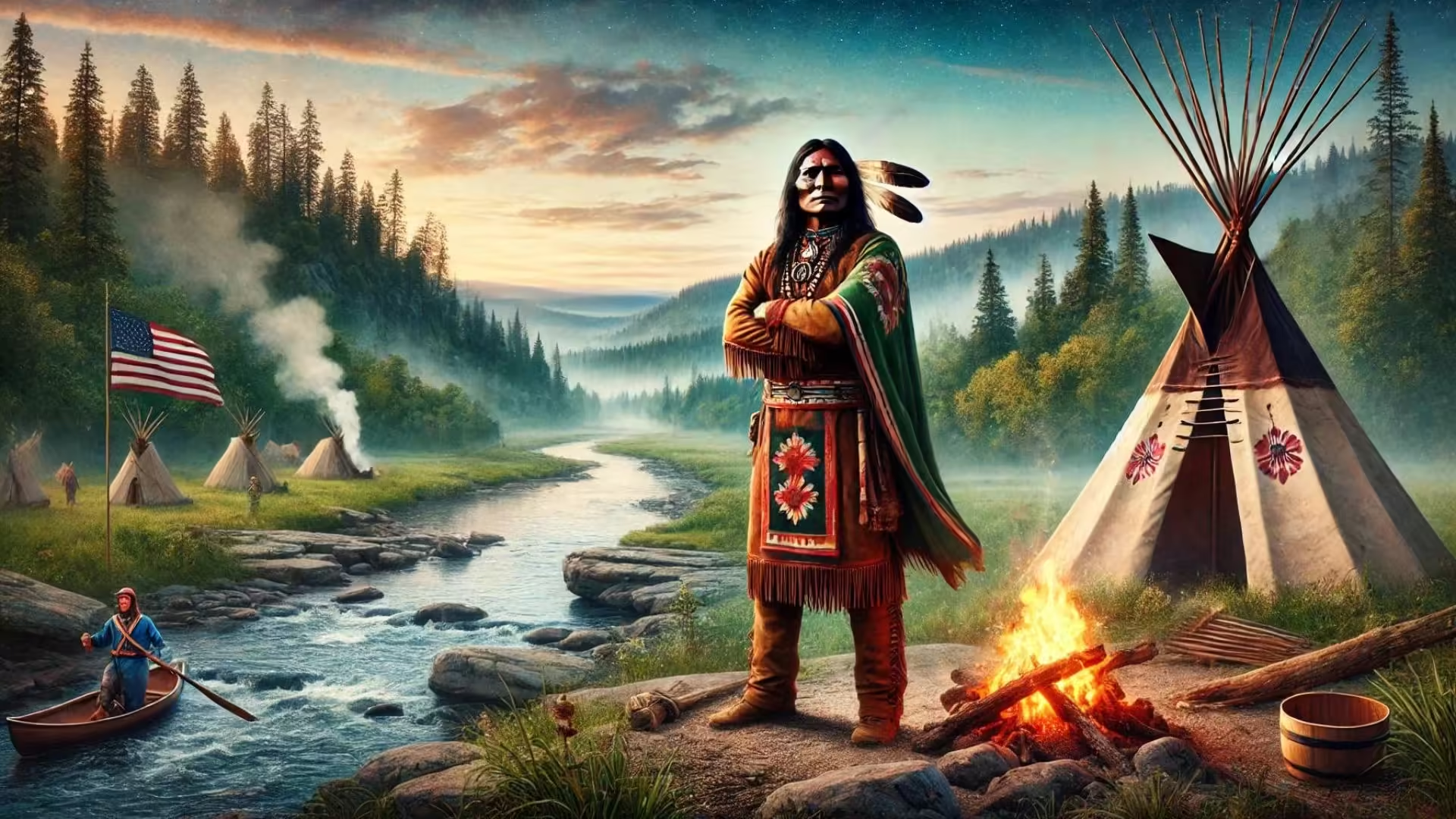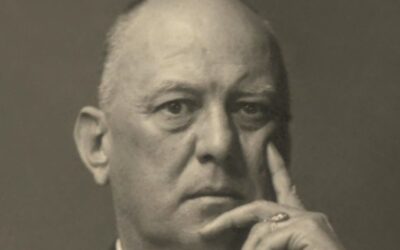Tecumseh, the great Shawnee leader, is remembered as one of the most powerful and influential figures in Native American history. His life was marked by a tireless struggle for the rights of Native Americans, a quest to unite tribes against the encroachment of European settlers, and a legacy that has inspired generations. Tecumseh’s leadership, vision, and courage not only made him famous during his lifetime but also cemented his place as a heroic figure in both Native American history and world history.
Tecumseh’s Early Life
Born in 1768 in the Ohio Valley, Tecumseh grew up during a turbulent time for Native American tribes. The Shawnee, like many other indigenous peoples, faced increasing pressure as European settlers expanded westward, encroaching on their lands. Tecumseh’s father, Puckeshinwa, was killed in battle against settlers when Tecumseh was just a boy, a loss that deeply influenced his outlook on life.
From a young age, Tecumseh was recognized for his intelligence, charisma, and warrior spirit. He participated in several battles alongside his older brother, Cheeseekau, gaining valuable experience in warfare and leadership. By his early adulthood, Tecumseh had become a respected figure within his tribe, known for his courage in battle and his eloquence in speech.
Tecumseh’s Quest for Unity
One of Tecumseh’s greatest achievements was his attempt to unite various Native American tribes into a confederation that could resist the encroachment of settlers. Tecumseh believed that only by standing together could the indigenous peoples protect their lands and cultures from being overrun by the ever-growing tide of American expansion.
This vision for unity was unprecedented. Native American tribes had long been divided by geography, language, and internal rivalries. Tecumseh, however, traveled extensively throughout the early 19th century, meeting with leaders from various tribes to persuade them to join his cause. His charisma and eloquence won him many followers, and he quickly became a symbol of hope for many Native Americans who saw their lands being taken away.
Tecumseh’s movement was further supported by his brother, Tenskwatawa, also known as the “Prophet.” Tenskwatawa led a religious revival among Native Americans, encouraging them to reject the influence of European settlers, including their goods and religion. Together, Tecumseh and Tenskwatawa represented both the political and spiritual leadership of this movement.
Tecumseh and the War of 1812
Tecumseh’s influence grew even further during the War of 1812, a conflict between the United States and Britain. Tecumseh allied himself with the British, believing that their success would slow or halt American expansion into Native American territories. He and his followers played a crucial role in several battles during the war, including the Siege of Fort Detroit, where his presence helped to intimidate American forces into surrendering.
However, despite some early successes, the tide of the war eventually turned against Tecumseh and his allies. The decisive moment came in 1813 during the Battle of the Thames, in modern-day Ontario, Canada. Tecumseh was killed in battle, and his death marked the collapse of the Native American confederation he had worked so hard to build. Without his leadership, the movement for unity faltered, and American expansion continued largely unchecked.
Tecumseh’s Legacy and Influence
Though Tecumseh did not achieve his ultimate goal of halting American expansion, his legacy as a fierce advocate for Native American rights and unity has endured. He is remembered as a brilliant military leader, a visionary statesman, and a symbol of resistance against colonialism.
Tecumseh’s efforts to forge unity among Native American tribes were groundbreaking and served as a model for future generations of indigenous leaders. His resistance to American encroachment is often compared to other great leaders who fought for their people’s freedom and autonomy. His story has been told in countless books, plays, and documentaries, ensuring that his impact continues to be felt.
Beyond Native American history, Tecumseh’s life resonates globally as a story of resistance, leadership, and the fight for justice. His courage in the face of overwhelming odds and his determination to protect his people’s way of life make him a symbol of resilience.
In modern times, Tecumseh has become a cultural icon, representing the enduring struggle of indigenous peoples to preserve their lands and cultures. His life and achievements are often celebrated in Native American communities and have been honored in the wider cultural imagination, particularly in Canada and the United States.
Tecumseh’s life is a powerful reminder of the strength and resilience of those who stand up against injustice. His legacy urges us to reflect on the importance of unity, leadership, and the ongoing struggles of indigenous peoples. Let Tecumseh’s story inspire you to learn more about the history of indigenous rights and the individuals who have fought for their people across the globe.
Expand Your Vocabulary
- Confederation:
A confederation is an alliance or union of groups, usually for a common purpose. In the article, Tecumseh attempted to create a confederation of Native American tribes to resist American expansion. In everyday life, we use this term when referring to groups or organizations that come together for a common goal, like “The sports teams formed a confederation to promote the new league.” - Encroachment:
Encroachment means gradually taking over or intruding on someone else’s territory or rights. The article discusses how American settlers encroached on Native American lands. In everyday usage, encroachment can refer to any form of intrusion, such as “The company’s expansion felt like an encroachment on smaller businesses.” - Charisma:
Charisma refers to personal charm or appeal that inspires devotion or admiration. Tecumseh’s charisma helped him gain followers and unite tribes. In daily conversations, we often use this term when describing leaders or individuals with magnetic personalities, such as “Her charisma won her many supporters in the election.” - Eloquence:
Eloquence is the ability to speak or write in a powerful and persuasive manner. Tecumseh was known for his eloquence in persuading tribal leaders to join his cause. In common usage, we may refer to a speech or a piece of writing as eloquent if it is compelling and moving, like “The speaker’s eloquence left the audience in awe.” - Unity:
Unity refers to the state of being united or working together. Tecumseh’s greatest goal was the unity of Native American tribes. In daily life, unity can be seen in teamwork or solidarity, such as “Unity among team members is key to success.” - Turbulent:
Turbulent means characterized by conflict, disorder, or confusion. Tecumseh was born during a turbulent time when Native American tribes faced growing pressure from settlers. We use the word to describe chaotic or unstable situations, such as “The company went through a turbulent period of reorganization.” - Resilience:
Resilience refers to the ability to recover from difficulties or setbacks. Tecumseh’s resilience is evident in his lifelong efforts to resist American expansion. In everyday language, we use this term when describing people or situations that can bounce back from challenges, like “The community showed incredible resilience after the storm.” - Resistance:
Resistance is the refusal to accept or comply with something. Tecumseh’s life was defined by his resistance to the colonization of Native lands. In daily contexts, resistance can describe standing up against any form of pressure or opposition, like “She faced resistance when trying to implement the new policy.” - Autonomy:
Autonomy refers to the ability to govern oneself or make independent decisions. Tecumseh fought for the autonomy of Native American tribes. In modern contexts, this word is often used to describe both personal and political independence, such as “The region demanded more autonomy from the central government.” - Legacy:
A legacy is something passed down from the past, often reflecting a person’s or event’s lasting impact. Tecumseh’s legacy lives on in Native American history and culture. We use this term frequently when discussing the long-term effects of someone’s actions, like “Her greatest legacy is the scholarship fund she established for underprivileged students.”
Let’s Talk
- Tecumseh dedicated his life to uniting Native American tribes in the face of encroachment. Do you think it’s possible for diverse groups to come together in modern times for a common cause? What challenges do you think they might face?
- How do you think Tecumseh’s charisma and eloquence contributed to his leadership? Can these traits alone make a successful leader, or are other qualities necessary?
- Tecumseh’s story is one of resilience and resistance. How do you think people today can apply these principles to causes they care about?
- Although Tecumseh’s confederation ultimately did not succeed, his legacy continues to inspire. Do you believe that a movement can still be considered successful even if it does not achieve its immediate goals? Why or why not?
- Tecumseh’s fight for Native American autonomy reflects broader struggles for self-determination. How do you think his efforts compare to other historical figures who fought for independence or rights in their communities?
- Do you think Tecumseh’s alliance with the British during the War of 1812 was a strategic decision that helped his cause, or did it contribute to his eventual downfall?
- What do you think are the most important lessons modern leaders can learn from Tecumseh’s life and approach to leadership?
- Tecumseh’s story is filled with both victories and tragedies. How do you think his ability to persevere through loss shaped his leadership style and overall legacy?
- How does Tecumseh’s fight for Native American sovereignty compare to modern movements for indigenous rights around the world today?
- If Tecumseh were alive today, how do you think he would respond to the ongoing struggles faced by indigenous communities in North America and beyond?
Discuss these questions with your friends, family, or in the comments section below to reflect on Tecumseh’s incredible life and the lessons we can learn from his enduring legacy.










0 Comments